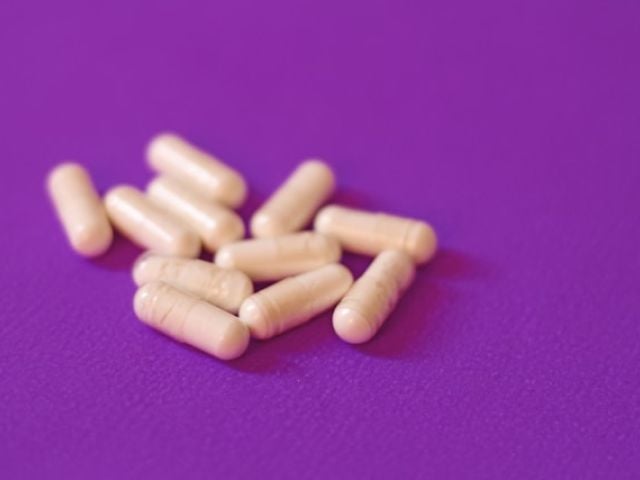
Which Supplements Have Been Studied for Long COVID?
If you’ve experienced a SARS-CoV-2 infection, you might be one of the millions facing symptoms that linger long after, a condition known as Long COVID, or Post-COVID Condition.
This can mean months of dealing with debilitating fatigue, “brain fog” that clouds thinking, shortness of breath, and ongoing inflammation, all of which can affect your quality of life.
In the search for ways to help, researchers are turning their attention to nutritional supplements. They want to look at how supplements could help reduce inflammation, protect cells from damage, and fill gaps in nutrition that might cause ongoing symptoms.
While the science is still evolving, and evidence is often preliminary, some studies offer early insights into which supplements might hold promise, though results can be mixed. In this guide, you will discover the key supplements under investigation for Long COVID and what current research indicates about their potential.
Key Takeaways
- Long COVID affects millions, and some supplements are emerging as possible ways to manage persistent symptoms.
- Researchers are exploring supplements targeting inflammation, oxidative stress, and mitochondrial function. Find out which ones show the most promise.
- Not all supplements studied for Long COVID have strong evidence behind them.
- Personalizing your approach could be crucial to managing Long COVID symptoms effectively.
Long COVID and Nutritional Interventions

Long COVID, also called Post-Acute Sequelae of SARS-CoV-2 infection (PASC), affects approximately 6% of people following COVID-19 condition.1 This condition presents with over 200 documented symptoms that can persist for months beyond the acute infection phase.2
Scientists are exploring nutritional supplements as a possible way to manage Long COVID. This is because studies show that Long COVID may be linked to long-term inflammation, stress on cells, and problems with how the body’s cells produce energy.
Supplements offer potential benefits through their ability to support the body’s natural processes, including modulating inflammatory responses, providing antioxidant support against cellular stress, and addressing nutritional deficiencies that may contribute to persistent COVID-19 symptoms.
However, research in this area is still limited. Most of the research is still in the early stages. The results so far are mixed. Different study methods also make it hard to compare findings. Additionally, 92% of Long COVID treatment research has been conducted in high-income countries.3 Since most didn’t include people from different backgrounds, the results may not reflect what works for all groups of people.
Long COVID Symptoms

Long COVID can affect nearly every system in the body. The most reported symptoms include fatigue, shortness of breath, brain fog, sleep disturbances, chest pain, and joint or muscle aches. Some people also experience anxiety, depression, or changes in taste and smell.
These symptoms may appear weeks after recovery and can persist for months, sometimes in waves. The wide range of effects makes Long COVID difficult to define and even harder to manage.
10 Supplements Studied for Long COVID

Researchers are investigating a range of supplements to support overall health and address common challenges seen in Long COVID. Here’s what current science says about the most studied options:
1. Vitamin D
Vitamin D is one of the most studied nutrients in relation to both acute and Long COVID. Regular supplementation has been associated with improved quality of life and reduced fatigue. Several studies have noted that maintaining optimal vitamin D levels may support immune regulation and help the body respond to ongoing challenges after COVID infection.
In a randomized controlled trial, participants receiving vitamin D3 and K2 reported fewer symptoms and improvements in markers related to inflammation and gut health compared to those receiving standard care.4 While not all studies agree, and no supplement is proven to treat Long COVID, vitamin D’s role in immune health makes it a central focus for ongoing research.
2. Vitamin C
Vitamin C is widely known for its antioxidant effects, which can help counteract oxidative stress, a condition that may play a central role in Long COVID symptoms. Some clinical trials and meta-analyses have shown modest benefits for all-cause mortality, although the results are mixed and vary by population and dosage.5
It is often used in multi-component formulations designed to support immune health. For example, an oral supplement combining vitamin C with polyphenols showed improvements in fatigue and inflammation. The inclusion of vitamin C in such blends is largely due to its accessibility, favorable safety profile, and antioxidant potential.
If you’re looking for a reliable source, check out our Vitamin C and Zinc supplement, designed to help support immune balance and oxidative defense.
3. Melatonin
Known for antioxidant, anti-inflammatory, and immune-support properties, melatonin helps manage cognitive issues (“brain fog”) and pain, also improving sleep regulation in Long COVID.6
Melatonin may help regulate circadian rhythms, reduce oxidative damage, and modulate immune cell responses—factors believed to contribute to the persistence of symptoms in Long COVID. Early research suggests that melatonin’s potential as a neuroprotective agent could support brain health in conditions resembling ME/CFS, which overlap with Long COVID presentations.7
Although early studies are promising, they tend to be small, and more clinical trials are needed to confirm the long-term safety and effectiveness of melatonin supplementation in this population.
4. N-Acetylcysteine (NAC)
NAC acts as a precursor to glutathione, a key antioxidant in the body. Research indicates that NAC supplementation may help normalize blood clotting factors in some individuals.8
Meta-analyses show NAC is associated with lower inflammation markers and improved oxygenation in COVID-19 patients, and ongoing trials are investigating its role in Long COVID specifically.9 NAC’s ability to help maintain antioxidant defenses and respiratory health is why it remains under active investigation.
NAC’s support of respiratory function and oxidative balance makes it a compound of interest.
5. NAD+ Boosters (NR & NMN)
Long COVID is linked to disruptions in cellular energy production. NAD+ boosters like nicotinamide riboside (NR) and nicotinamide mononucleotide (NMN) are being studied for their ability to support energy metabolism and potentially ease fatigue.
Early clinical trials suggest these supplements can safely increase NAD+ levels in humans, with some evidence pointing to improved metabolic function and reduced fatigue.10 11 As research continues, NAD+ boosters remain a focus for those seeking to optimize cellular energy and resilience.
6. Combination Natural Supplements
Several studies have examined blends of natural ingredients such as echinacea, rosehip, propolis, and royal jelly for their potential to support immune health and reduce fatigue.12
Clinical trials have found that these combinations may help modulate inflammation and improve quality of life in people with Long COVID. For example, one randomized trial found that a botanical blend led to reductions in inflammatory markers and improved fatigue scores.13
7. Hydrogen-Rich Water
This is an innovative approach that has shown promise in small clinical trials. Drinking hydrogen-rich water for two weeks was associated with significant reductions in fatigue and improved exercise tolerance in people with Long COVID.14
Its antioxidant and anti-inflammatory properties may help support cellular health and reduce the impact of oxidative stress.15 While study sizes remain small, hydrogen-rich water is generally considered safe and is being further explored for its potential benefits.
8. Essential Minerals (Zinc, Selenium, Magnesium)
Zinc, selenium, and magnesium are vital minerals for immune function and cellular processes. Studies have shown that patients with COVID-19 often have lower levels of these minerals, and supplementation may help support recovery, especially when included in combination formulas.16
Zinc, for example, is important for immune cell function, while magnesium and selenium play roles in antioxidant defense. However, excessive intake of these minerals may have adverse effects, so it’s important to use them as directed and consult with a healthcare provider.
9. Creatine
People with Long COVID have been found to have lower creatine levels in the brain and muscles.17 A clinical trial published by Food Science & Nutrition showed fatigue reduction after 3 months of supplementation in patients with post‐COVID‐19 fatigue syndrome.18
Creatine helps support cellular energy production and may be useful for those experiencing post-exertional malaise.
10. Quercetin
Quercetin, a plant flavonoid, has been studied in several clinical trials for COVID-19 and early Long COVID symptoms.19 Doses between 500–1500 mg daily have been associated with faster recovery, reduced inflammation, and improved viral clearance.
Its anti-inflammatory and antioxidant properties are of particular interest for ongoing inflammation in Long COVID. These supplements are being actively researched, but most evidence is early, and not all findings are consistent.
Always consult a healthcare professional before starting any new supplement, especially if you have underlying health conditions or are taking other medications.
Research Limitations and What They Mean

While interest in nutritional supplements for Long COVID is growing, several important research limitations shape what we know and what we don’t. Most studies have been conducted in high-income countries, with over 90% of research coming from these regions.
This geographic bias means findings may not apply to people in lower-income settings, where health profiles, access to care, and even nutritional status can differ widely. Furthermore, participant diversity is limited.
Many studies didn’t include enough children, pregnant women, older adults, and ethnic minorities. This makes it hard to know if results are relevant for everyone experiencing Long COVID.
Another major challenge is inconsistent study protocols. Researchers use different definitions for Long COVID, varied symptom checklists, and a wide range of supplement dosages and treatment durations.
These differences make it difficult to compare results or combine data across studies. Many trials also have small sample sizes and rely on observational designs, which are more prone to bias and less able to establish clear cause-and-effect relationships.
Some reviews don’t explain their methods well or meet quality standards, which makes the findings harder to interpret. That’s why we need more large, well-designed studies that include different kinds of people and use the same ways to measure results. Only then can we know if any supplements really help those with Long COVID.
Takeaways for Long COVID Patients

If you’re navigating recovery from Long COVID, it’s understandable to look for tools that may support your body along the way. While no supplement is approved to treat, cure, or prevent Long COVID, several nutrients and compounds are under active investigation for their potential role in symptom support.
Among the most studied are vitamin D, melatonin, N-acetylcysteine (NAC), creatine, and NAD+ precursors like NR and NMN. Early research suggests these supplements may help support energy metabolism, sleep regulation, immune balance, or general wellness in those experiencing lingering symptoms.
However, current evidence is preliminary, and supplements aren’t replacements for medical care. Always consult a healthcare provider before starting new supplements.
Your provider can help determine what’s safe and effective based on your unique health needs and symptoms. It’s important to have realistic expectations—supplements might offer symptom relief, but are not cures.
Consider NAD+ testing to identify if cellular energy support could benefit your recovery, making supplementation more targeted and effective. Personalized approaches, guided by reliable testing, are key to managing Long COVID effectively.
Referenced Sources:
- https://www.who.int/news-room/fact-sheets/detail/post-covid-19-condition-(long-covid) ↩︎
- https://www.ncbi.nlm.nih.gov/books/NBK605678/ ↩︎
- https://wellcomeopenresearch.org/articles/9-358 ↩︎
- https://pubmed.ncbi.nlm.nih.gov/39861434/ ↩︎
- https://pmc.ncbi.nlm.nih.gov/articles/PMC10146309/ ↩︎
- https://pmc.ncbi.nlm.nih.gov/articles/PMC9687267/ ↩︎
- https://pubmed.ncbi.nlm.nih.gov/36358996/ ↩︎
- https://pubmed.ncbi.nlm.nih.gov/38126172/ ↩︎
- https://pmc.ncbi.nlm.nih.gov/articles/PMC10390689/ ↩︎
- https://pmc.ncbi.nlm.nih.gov/articles/PMC10692436/ ↩︎
- https://pmc.ncbi.nlm.nih.gov/articles/PMC10692436/ ↩︎
- https://pmc.ncbi.nlm.nih.gov/articles/PMC11053797/ ↩︎
- https://www.frontiersin.org/journals/nutrition/articles/10.3389/fnut.2021.658630/full ↩︎
- https://pmc.ncbi.nlm.nih.gov/articles/PMC11123997/ ↩︎
- https://pmc.ncbi.nlm.nih.gov/articles/PMC11123997/ ↩︎
- https://pmc.ncbi.nlm.nih.gov/articles/PMC10215594/ ↩︎
- https://pmc.ncbi.nlm.nih.gov/articles/PMC10394531/ ↩︎
- https://pmc.ncbi.nlm.nih.gov/articles/PMC10630839/ ↩︎
- https://www.sciencedirect.com/science/article/pii/S2405844024061115 ↩︎











